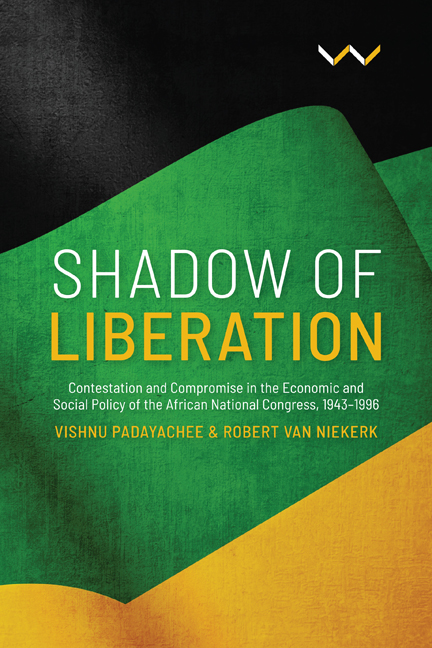 Shadow of Liberation
Shadow of Liberation Book contents
- Frontmatter
- Contents
- Acronyms and abbreviations
- Preface
- Acknowledgements
- Chapter 1 The Context of Economic and Social Policy-Making in the ANC
- Chapter 2 African Claims, the Freedom Charter and Social Democracy, 1943–1960
- Chapter 3 Incarceration, Exile and Homecoming, c.1960–c.1991
- Chapter 4 Economic Policy Debates during a Decade of Liberation, 1985–1993
- Chapter 5 On the Way to GEAR, 1994–1996
- Chapter 6 Making Sense of the Economic Policy Debates
- Chapter 7 South African Reserve Bank Independence
- Chapter 8 The Politics of Health Policy-Making in the Transition Era, 1990–1996
- Chapter 9 Interpretation and Conclusion
- Notes
- Bibliography
- Index
Chapter 7 - South African Reserve Bank Independence
Published online by Cambridge University Press: 20 January 2022
- Frontmatter
- Contents
- Acronyms and abbreviations
- Preface
- Acknowledgements
- Chapter 1 The Context of Economic and Social Policy-Making in the ANC
- Chapter 2 African Claims, the Freedom Charter and Social Democracy, 1943–1960
- Chapter 3 Incarceration, Exile and Homecoming, c.1960–c.1991
- Chapter 4 Economic Policy Debates during a Decade of Liberation, 1985–1993
- Chapter 5 On the Way to GEAR, 1994–1996
- Chapter 6 Making Sense of the Economic Policy Debates
- Chapter 7 South African Reserve Bank Independence
- Chapter 8 The Politics of Health Policy-Making in the Transition Era, 1990–1996
- Chapter 9 Interpretation and Conclusion
- Notes
- Bibliography
- Index
Summary
Since its establishment in 1921, the South African Reserve Bank (SARB) was both legally and practically subordinate to the Ministry of Finance and to the government of the day, despite the fact that it was wholly owned by private shareholders. It had neither the mandate to set independent goals to achieve nor full operational independence to realise them. Its mandate was eclectic and at various times included price stability, exchange rate stability and economic growth.
It is important at the outset to gain some understanding of government–SARB interactions in the late apartheid era to better understand the significance of what followed in the ‘negotiations’ over central bank independence in the 1990s. We learn from former President FW de Klerk that Gerhard de Kock regularly appeared at Cabinet meetings during his tenure as governor to make presentations on the economy, a practice that De Klerk apparently stopped soon after he became president in 1989. Yet, we also know that Governor de Kock met De Klerk in Hermanus (where both had holiday homes) from time to time to discuss economic issues in general terms. De Klerk's views on central bank independence may have arisen out of these meetings, but also from his general belief that the state should not interfere in economic matters, including the work of the Reserve Bank. De Kock was clearly an important influence on De Klerk on such matters (De Klerk interview, 28 January 2019).
De Klerk's decision to end the practice of the governor attending some Cabinet meetings appears to be in stark contrast to developments in the 1980s. There is a view that during PW Botha's term as prime minister, then president, he intervened directly in monetary policy matters (see Rossouw and Padayachee 2011: S60–61; Rossouw and Padayachee 2019). This is illustrated by the ‘infamous’ Primrose by-election on 29 November 1984, when President Botha allegedly instructed Governor de Kock to reduce the interest rate in order to win the support of heavily indebted farmers in that constituency, in what appeared to be a close contest between the governing National Party and the opposition Conservative Party. Despite official denials, the governor complied with this directive from the president and dropped rates.
- Type
- Chapter
- Information
- Shadow of LiberationContestation and Compromise in the Economic and Social Policy of the African National Congress, 1943–1996, pp. 179 - 198Publisher: Wits University PressPrint publication year: 2019


